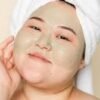How Pollution Impacts Your Skin and What You Can Do About It
Pollution is an ever-present concern in modern life, especially for those living in urban areas. While we’re well aware of the health risks associated with air pollution, many of us overlook the toll it takes on our skin. Pollution can damage your skin in ways that lead to premature aging, irritation, and even long-term health problems. Fortunately, there are effective measures you can take to protect and care for your skin. This article will explore how pollution impacts your skin and what you can do to safeguard it.
Understanding Pollution and Its Effects on the Skin
Pollution refers to the presence of harmful substances in the environment, including particulate matter, ozone, nitrogen dioxide, and polycyclic aromatic hydrocarbons (PAHs). These pollutants come from various sources, such as vehicle emissions, industrial processes, and chemical waste. When these particles come into contact with your skin, they can penetrate the outer layer and cause a cascade of negative effects.
1. Free Radical Damage
One of the most significant ways pollution impacts your skin is through the production of free radicals. Free radicals are unstable molecules that cause oxidative stress, which leads to the breakdown of collagen and elastin fibers. These proteins are essential for maintaining the skin’s firmness and elasticity. Over time, free radical damage can accelerate the aging process, leading to wrinkles, fine lines, and sagging skin.
2. Inflammation and Irritation
Pollutants like nitrogen dioxide and ozone can cause inflammation by triggering an immune response in the skin. This inflammation can manifest as redness, sensitivity, and irritation. For people with pre-existing skin conditions such as eczema or rosacea, pollution can exacerbate symptoms and make the skin more reactive.
3. Clogged Pores and Breakouts
Pollution can also lead to clogged pores and breakouts. Particulate matter (PM), especially fine particles like PM2.5, is small enough to settle into your pores, mixing with sebum and dead skin cells. This can result in blackheads, whiteheads, and acne. The skin’s natural barrier function is compromised when pores are clogged, making it harder for the skin to defend itself against further damage.
4. Loss of Skin Radiance
Another noticeable effect of pollution is the loss of skin radiance. Pollution particles can cause your complexion to appear dull and uneven. This is because pollutants create a layer of grime on your skin, preventing light from reflecting evenly. Over time, this buildup can contribute to uneven skin tone and dark spots, especially in areas with high pollution levels.
5. Dehydration and Barrier Damage
Pollution can strip the skin of its natural moisture, leading to dehydration. This can make your skin feel dry, tight, and uncomfortable. Additionally, pollutants weaken the skin’s protective barrier, which is responsible for keeping moisture in and harmful substances out. A compromised barrier makes it easier for pollutants to penetrate the skin, causing more damage and leading to a cycle of dryness and irritation.
How to Protect Your Skin from Pollution
While avoiding pollution entirely is nearly impossible, you can take proactive steps to protect your skin and mitigate its effects. By adopting the right skincare routine and lifestyle habits, you can minimize pollution’s harmful impact on your complexion.
1. Double Cleansing
Double cleansing is essential for removing the buildup of dirt, oil, and pollutants that accumulate on your skin throughout the day. Start with an oil-based cleanser to break down makeup, sunscreen, and oil. Follow up with a water-based cleanser to wash away any remaining impurities.
This two-step process ensures that your skin is thoroughly clean, reducing the chances of clogged pores and allowing your skin to better absorb the active ingredients in your skincare products.
2. Antioxidant-Rich Skincare
Since pollution leads to free radical damage, incorporating antioxidants into your skincare routine is crucial. Antioxidants neutralize free radicals, preventing them from causing oxidative stress. Ingredients like Vitamin C, Vitamin E, niacinamide, and green tea extract are excellent choices for protecting your skin.
For optimal results, use an antioxidant serum in the morning after cleansing. This will help shield your skin from environmental aggressors throughout the day. Don’t forget to follow up with a moisturizer and sunscreen to lock in hydration and protect your skin from UV rays.
3. Moisturize and Strengthen the Skin Barrier
Keeping your skin’s barrier strong is key to protecting it from pollution. Moisturizers with ingredients like ceramides, hyaluronic acid, and squalane help to maintain the skin’s protective layer and lock in moisture. A well-hydrated skin barrier is more resilient and better equipped to defend against pollutants.
If your skin is particularly sensitive or prone to dryness, consider using a richer, more emollient moisturizer, especially at night. This will help repair any damage done during the day and ensure your skin remains hydrated.
4. Use Sunscreen Every Day
Sunscreen is non-negotiable when it comes to protecting your skin from both UV rays and pollution. Many pollutants increase the skin’s sensitivity to sunlight, making it more prone to damage. A broad-spectrum sunscreen with at least SPF 30 will protect your skin from harmful UV rays and reduce the risk of sun damage, which can exacerbate the effects of pollution.
Look for sunscreens that contain antioxidants, as they provide an added layer of protection against free radicals. Be sure to reapply every two hours if you’re outdoors or exposed to pollution for extended periods.
5. Detoxifying Masks
Incorporating a detoxifying mask into your routine can help draw out impurities and pollutants that your daily cleanser might miss. Charcoal and clay masks are particularly effective at absorbing toxins and deep-cleansing the skin. Use a detoxifying mask once or twice a week to keep your pores clear and your complexion refreshed.
These masks can also help reduce inflammation and calm irritated skin, making them a great addition to any anti-pollution skincare routine.
6. Exfoliate Regularly
Regular exfoliation is important for removing dead skin cells and preventing pollutants from clogging your pores. However, it’s important to strike a balance—over-exfoliating can weaken the skin’s barrier and make it more susceptible to damage. Aim to exfoliate 1-3 times per week, depending on your skin type and the product you’re using.
Chemical exfoliants like glycolic acid and lactic acid are gentle yet effective options for sloughing off dead skin cells without causing irritation. They also help to brighten the skin, which can counteract the dulling effects of pollution.
7. Stay Hydrated and Eat Antioxidant-Rich Foods
What you put into your body is just as important as what you apply to your skin. Drinking plenty of water throughout the day helps to keep your skin hydrated from the inside out, which is essential for maintaining a healthy complexion.
In addition, consuming a diet rich in antioxidants can help combat the effects of pollution. Foods like berries, leafy greens, nuts, and seeds are high in vitamins and minerals that protect your skin from free radical damage. Omega-3 fatty acids, found in fish and flaxseed, also support skin health by reducing inflammation and strengthening the skin’s barrier.
The Long-Term Effects of Pollution on the Skin
Prolonged exposure to pollution can have long-lasting effects on your skin. In addition to accelerating the aging process, pollution can cause more serious skin concerns like hyperpigmentation, chronic inflammation, and even skin cancer. People living in highly polluted areas are at an increased risk for these conditions, making it all the more important to adopt preventive measures.
Moreover, the damage caused by pollution doesn’t stop at the surface. Pollution can weaken the skin’s immune system, making it more susceptible to infections and diseases. Over time, this can lead to a compromised skin barrier, leaving your skin vulnerable to a host of problems.
10 Anti-Aging Skincare Ingredients You Need in Your Routine
Conclusion: Take Action to Protect Your Skin from Pollution
Pollution is a serious threat to skin health, but the good news is that you can take steps to protect yourself. By incorporating a thorough cleansing routine, using antioxidant-rich products, and maintaining a strong skin barrier, you can mitigate the effects of pollution and keep your skin looking radiant and youthful. Don’t forget the importance of sunscreen, regular exfoliation, and a healthy diet rich in antioxidants to support your skin from the inside out. With these strategies in place, you can safeguard your skin against the harmful effects of pollution and enjoy a healthy, glowing complexion for years to come.








Leave a reply